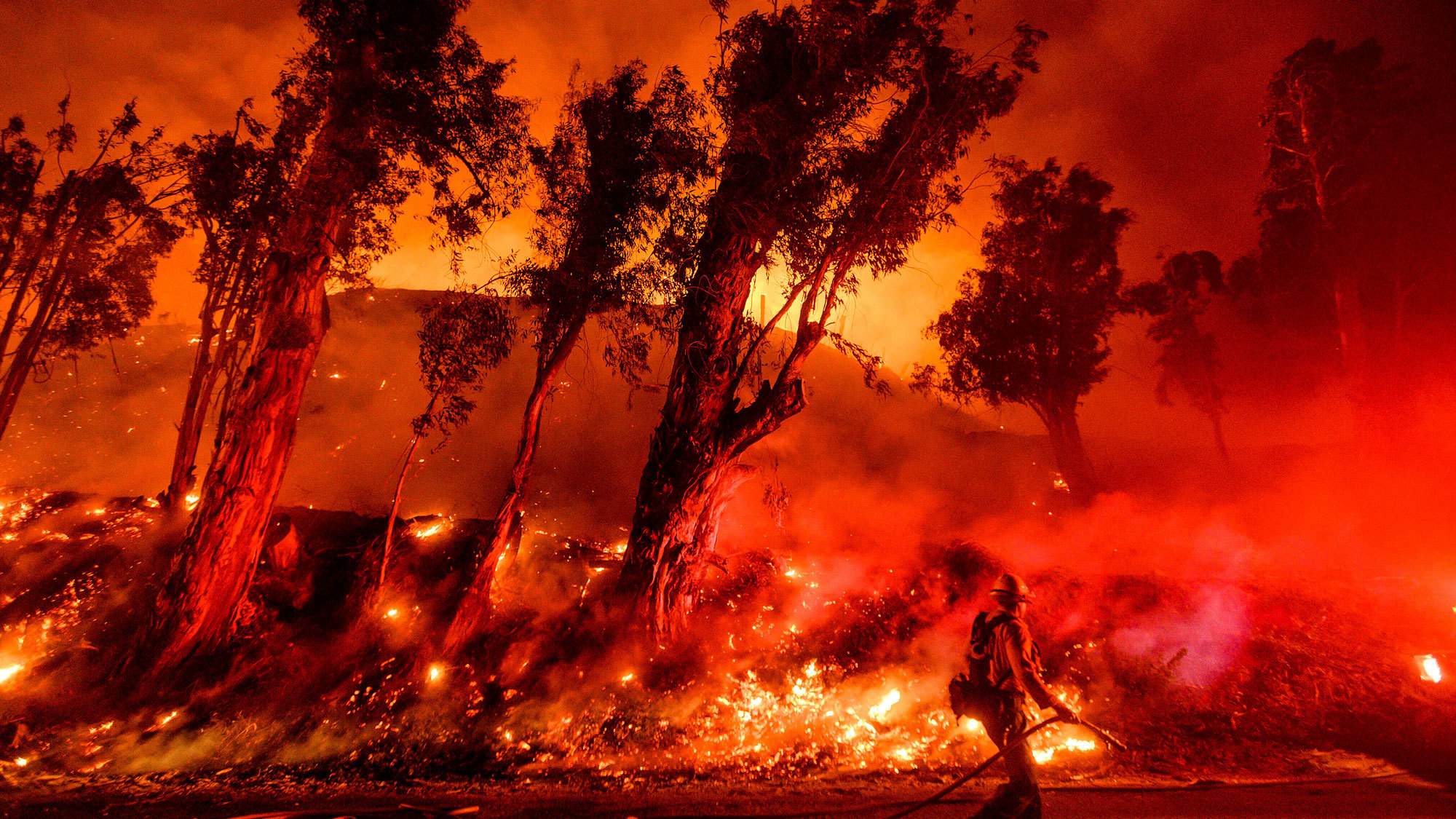August 2024
The August global surface temperature was 1.27°C (2.29°F) above the 20th-century average of 15.6°C (60.1°F), making it the warmest August on record. This was 0.01°C (0.02°F) above the previous August record set last year, and the 15th consecutive month of record-high global temperatures. August 2024 marked the 46th consecutive August (since 1979) with temperatures at least nominally above the 20th-century average.Powered by ZingChart
It was the second warmest August for global ocean surface temperatures. These temperatures occurred under ENSO-neutral conditions. According to NOAA's Climate Prediction Center, La Niña conditions are expected to emerge in September-November (71% chance) and should persist through January-March 2025.
The Northern Hemisphere had its second-warmest August on record at 1.48°C (2.66°F) above average. The Northern Hemisphere land temperature also was second-warmest for August as was the ocean temperature. These were all slightly cooler than the record warm Northern Hemisphere in August 2023. The Arctic region had its fourth-warmest August on record.
August 2024 in the Southern Hemisphere ranked warmest on record at 1.06°C (1.91°F) above average. The ocean-only temperature for August in the Southern Hemisphere ranked second-highest on record, while the land-only Southern Hemisphere temperature was warmest on record. Meanwhile, the Antarctic region had its second-warmest August on record, 1.85°C (3.33°F) above average, and Antarctic sea ice extent was second lowest on record.

August 2024 Blended Land and Sea Surface Temperature Anomalies in degrees Celsius

August 2024 Blended Land and Sea Surface Temperature Percentiles
A smoothed map of blended land and sea surface temperature anomalies is also available.
Record warm temperatures covered large parts of central and western Europe and northern Africa in August. Record warmth also occurred in parts of Central America and the Caribbean, as well as areas of southwestern, central and eastern Asia. Record warm August temperatures also were widespread in Australia as well as Antarctica, where temperatures more than 4.0°C (7.2°F) warmer than average covered large parts of the continent. Elsewhere, much-warmer-than-average temperatures were present across most of central and northern South America stretching into Central America, through Mexico and into the southwestern U.S. Much warmer than average temperatures also were present across much of Canada and Greenland.
In the Arctic, record warm and much-above-average temperatures covered much of the region. Record-warmth reported in parts of the Arctic included several locations in the Swedish Arctic and in the Norwegian Arctic, where the Norwegian Meteorological Service reported (English translation) that all five weather stations with long measurement series, Bjørnøya, Hopen, Svalbard Airport, NyÅlesund and Jan Mayen set records for the warmest August, and both Bjørnøya and Svalbard Airport exceeded 10°C (50°F) as an average monthly temperature in August for the first time. In addition, temperatures exceeding 20°C (68°F) were measured for the first time at Svalbard Airport in August.
Record-warm temperatures covered approximately 10.3% of the world's surface this August, which was the highest percentage for August since the start of records in 1951, and 0.8% higher than the previous August record of 2023. Record-warmth covered approximately 11.4% of the global land surface, which also was the greatest coverage of record August temperatures since 2023.
In contrast to the expansive areas of much-warmer-than-average and record heat, cooler-than-average temperatures covered areas that included parts of the Russian Far East and western Alaska, much of Argentina and Chile, parts of central Africa as well as much of Pakistan, northern Kazakhstan and neighboring areas of Russia.
Across the global oceans, record warm sea surface temperatures covered parts of the Atlantic and much of the Caribbean. Record warmth also occured in central areas of the Indian Ocean, parts of the western Pacific and the Southern Ocean. Record-warm temperatures covered approximately 9.8% of the world's oceans in August, 0.9% greater than in 2023 and the highest percentage for August since the start of records in 1951. Approximately 0.2% of the global oceans was record cold in August. Near-average to cooler-than-average temperatures occurred in areas that included parts of the North Atlantic, the Bering Sea (where August temperatures were more than 1°C [1.8°F] below average), the eastern South Pacific, the southern Atlantic, and small parts of the Southern Ocean.
Europe had its warmest August on record, while Africa and North America each had their third-warmest Augusts, and South America its sixth-warmest August.




